Events
Stay up-to-date with the latest happenings, exciting developments, and upcoming events within the DDP network. Here, we bring you an overview of all the news and activities that shape our community.
Read our NDC-Insights series
Download or read online bulletin 2025 #5
Download or read online bulletin 2025 #4
Download or read online bulletin 2025 #3
Download or read online bulletin 2025 #2
Download or read online bulletin 2025 #1
Read our quarterly bulletin
- Senegal
- Event
- 2025
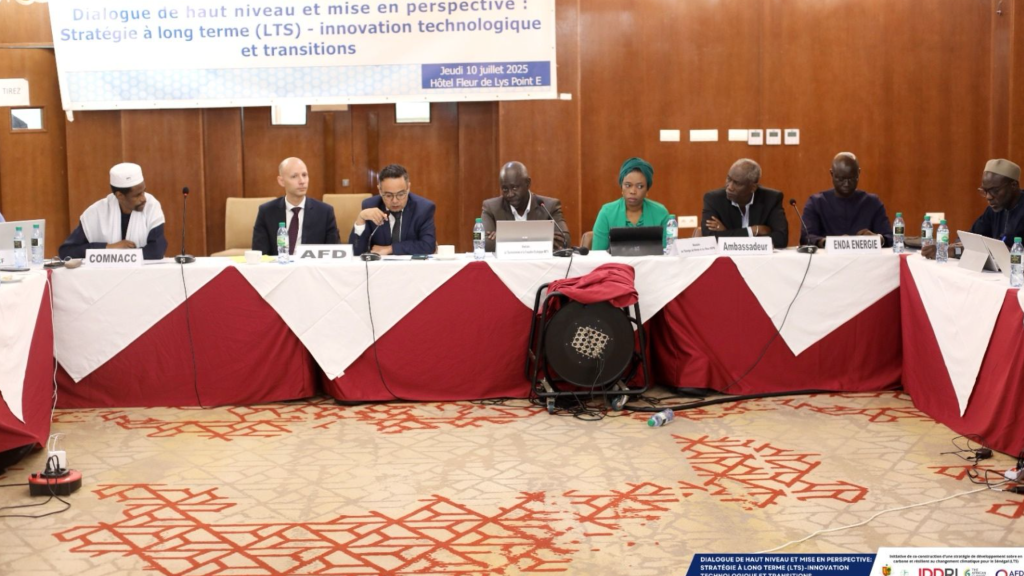
High-level dialogue: Senegal’s long-term strategies (LTS)
- Senegal
- Event
- July 18, 2025
High-level dialogue: Senegal’s long-term strategies (LTS)
- Senegal
On July 10, IDDRI and ENDA Energie co-organized a high-level event in Dakar on Senegal’s long-term strategies (LTS), as part of the DDP Senegal project funded by the French Development Agency (AFD). The initiative aims to strengthen the country’s technical and institutional capacities to better align short-term decisions with long-term sustainable development pathways.
During the event, four contrasting energy transition scenarios for 2050 were presented:
- a scenario that continues current trends;
- two scenarios that achieve the objectives of the Just Energy Transition Partnership (JETP) by 2030, one based on gas development and the other on renewables;
- and a scenario focused on energy efficiency, combining demand-side measures and accelerated deployment of renewable energy.
The event brought together ENDA Energie, IDDRI, AFD, the African Climate Foundation, as well as representatives from the Ministry of Environment and Ecological Transition (METE) and the Ministry of Energy, Petroleum and Mines (MEPM).
- JUSTPATH
- Meeting
- 2025

HOW TO REACH CARBON NEUTRALITY? Insights from national pathways to net zero in large emitting countries
- JUSTPATH
- Meeting
- June 18, 2025
HOW TO REACH CARBON NEUTRALITY? Insights from national pathways to net zero in large emitting countries
Practical information
Date: July 3rd, 2025
Time 9:45am-11:30am
Location: Mundo Madou, Avenue des Arts 7/8, Bruxelles (Belgium)
Format : In-person public event
Short description of the event
This event, co-organised by IDDRI think tank and the Institute for European Environmental Policy – IEEP, explored long-term transformations and immediate actions required to achieve carbon neutrality, consistent with the objectives of the Paris Climate Agreement and socioeconomic objectives.
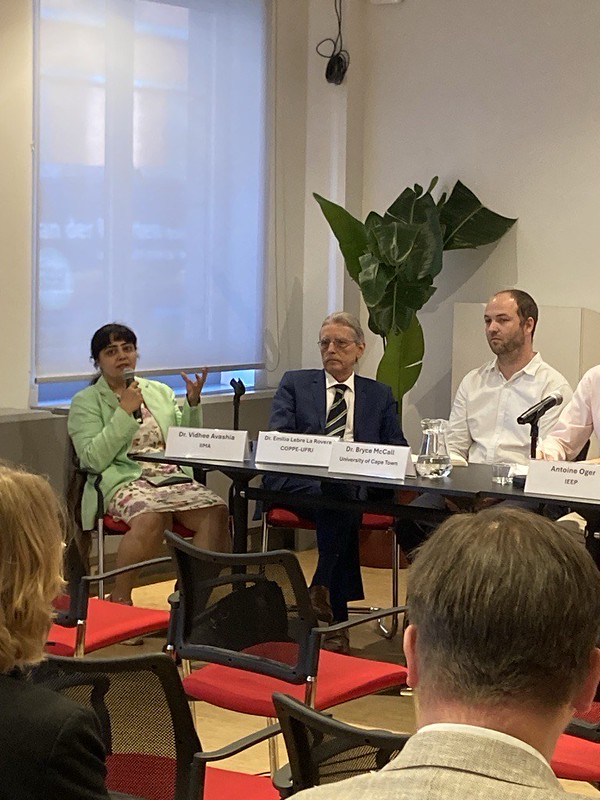
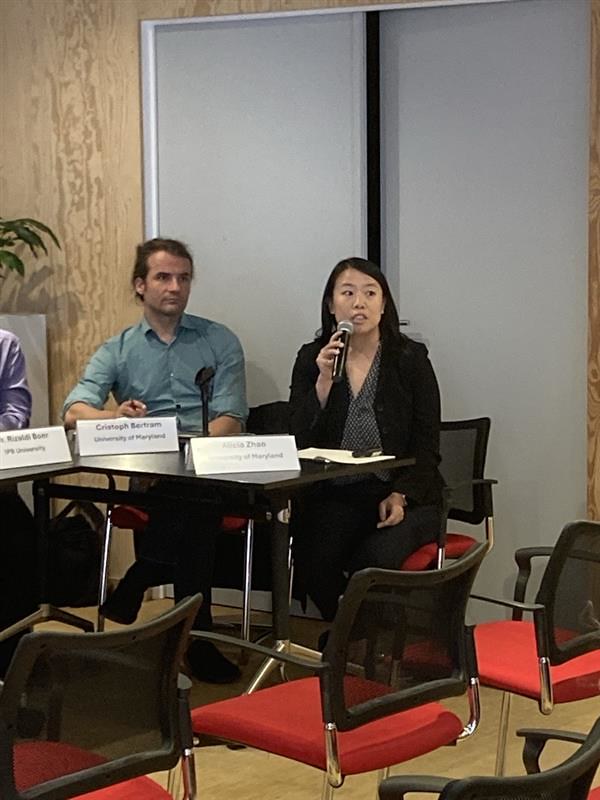
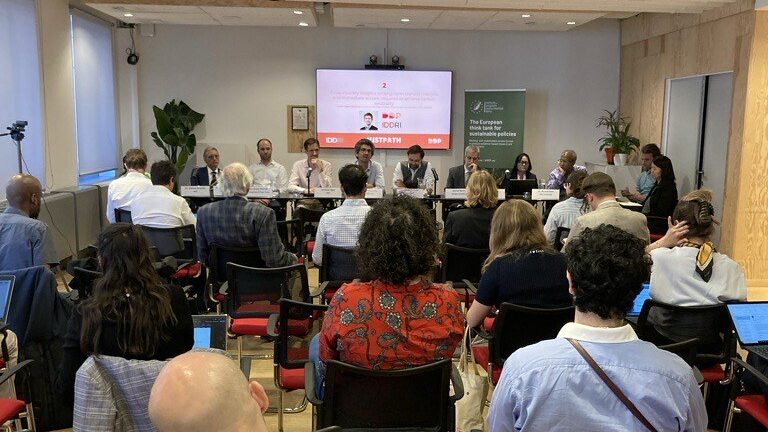
These insights are drawn from a detailed analysis presented in the DDP Annual report 2024, based on national pathways to net zero in nine large-emitting countries, conducted by in-country experts as part of the Deep Decarbonization Pathways initiative.
After a short overview of cross-country insights, national experts from 6 countries (Brazil, India, Indonesia, Mexico, South Africa and the United States) provided a snapshot on their country-driven analysis, including concrete and tangible examples of key transformations and actions. Reactions from the EU perspective were provided and an open Q&A allowed participants to discuss directly with panelists.
List of speakers
- Henri Waisman, Director of the Deep Decarbonization Pathways Initiative (DDP), IDDRI
- Antoine Oger, Director of the Institute for European Environmental Policy (IEEP)
- Speakers from EEAS
- DDP country expert from 6 countries:
- Brazil: Dr. Emilio Lebre La Rovere, Director of CentroClima, COPPE – University of Rio de Janeiro (COPPE-UFRJ)
- India: Dr Vidhee Avashia, Senior Researcher, Indian Institute of Management Ahmedabad (IIMA)
- Indonesia: Dr. Rizaldi Boer, Director of the International Research Institute for Environment and Climate Change, IPB University
- Mexico: Daniel Buira, Co-founder and Scientific Director, Tempus Analitica (TA)
- South Africa: Dr. Bryce McCall, Researcher at ESRG, University of Cape Town (UCT)
- The United States: Alicia Zhao or Christoph Bertram, University of Maryland (UMD)


This event is organized in the context of the JUSTPATH project, a DG CLIMA-funded global action project which focuses on supporting countries and stakeholders in creating and expanding the robust modelling base for domestic mitigation action, feeding into both national and international processes.
See and download the presentation
- Senegal
- Meeting
- 2025
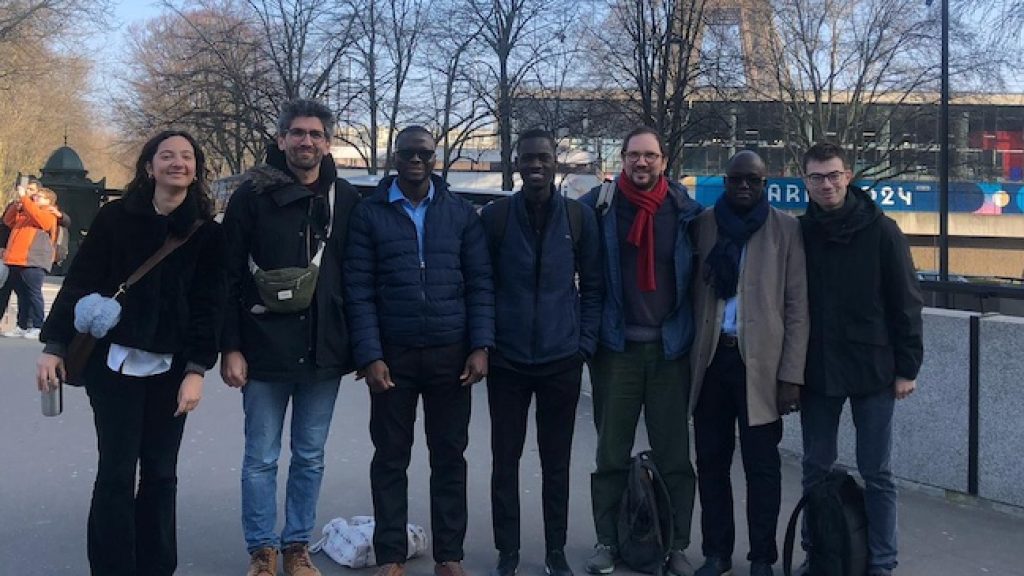
Energy transition in Senegal
- Senegal
- Meeting
- February 18, 2025
Energy transition in Senegal
- France, Senegal
Last week, Samba Fall, Cheikh Dieylani Diop and Ansoumana Djite from ENDA Energie in Dakar joined the DDP Secretariat in Paris for a week of intensive work to develop and model pathways for the Senegalese energy transition as part of the DDP Senegal project, supported by AFD. This involved exploring different pathways of how Senegal can fulfill commitments under the Just Energy Transition Partnership with France, Germany and the EU, while achieving universal electricity access and supporting economic development. Results from the DDP Senegal project will be published in a few weeks.
With (from left to right): Clara Lepin, DDP Secretariat in Paris
Henri Waisman, Director, DDP Secretariat in Paris
Ansoumana Djite, ENDA Energie, Senegal
Cheikh Dieylani Diop, ENDA Energie, Senegal
Yann Briand, DDP Secretariat in Paris
Samba Fall, ENDA Energie, Senegal
Alexandre Tourbah, CIRED, France
Johannes Svensson, DDP Secretariat in Paris (missing on the photo)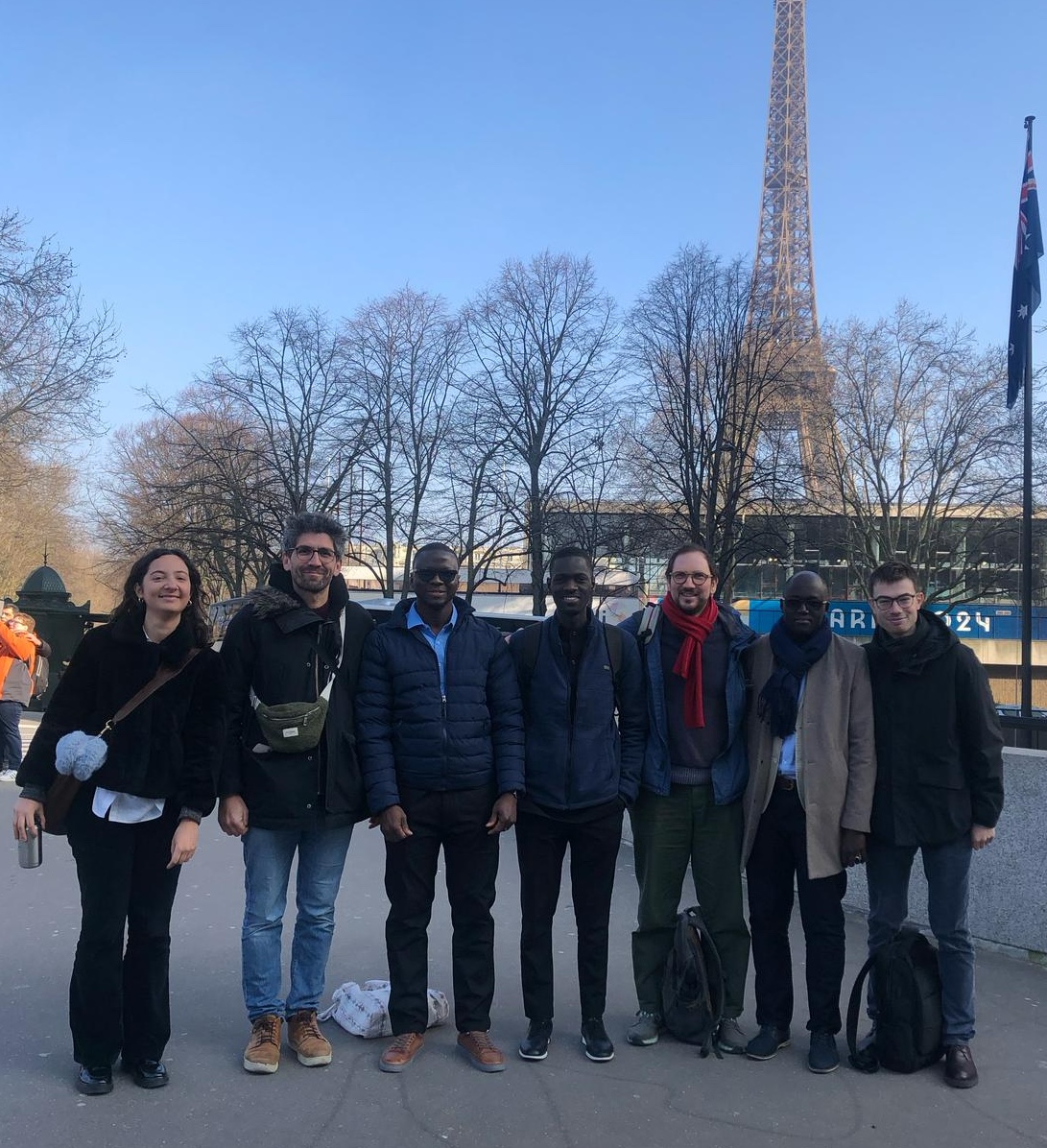
- Workshop
- 2024
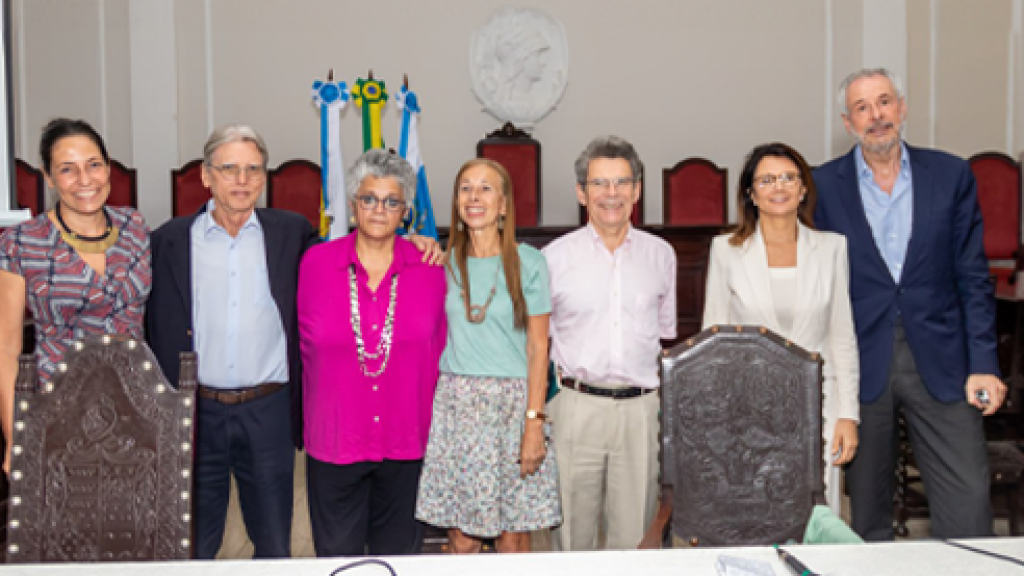
Launch of the “Luiz Pinguelli Rosa” chair, a desirable future: Just Transition to Climate Compatible Development in Brazil
- Read more…
- Workshop
- November 19, 2024
Launch of the “Luiz Pinguelli Rosa” chair, a desirable future: Just Transition to Climate Compatible Development in Brazil
- Brazil
On October 18th, COPPE organized an event in Rio de Janeiro, Brazil, in honour of the late Luiz Pinguelli Rosa to discuss these proposals with high-rank Brazilian Government officials (Ana Toni, From the Ministry of Environment; and André Corrêa do Lago, from the Ministry of Foreign Affairs) together with Izabella Teixeira, former Minister of Environment and other co-authors of the papers (J.C. Hourcade from CIRED, France and Maria Netto, from iCS).
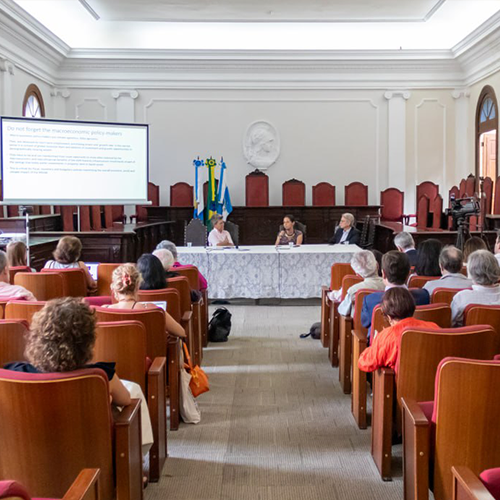
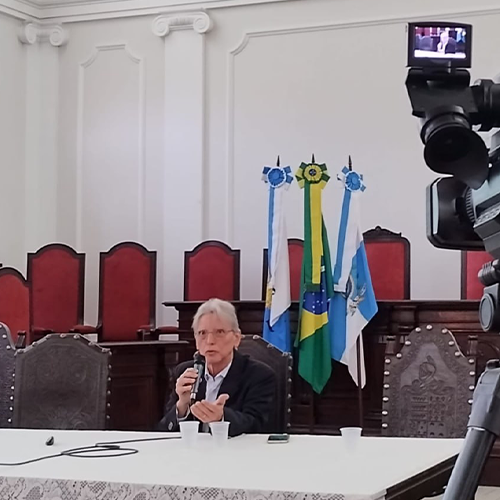
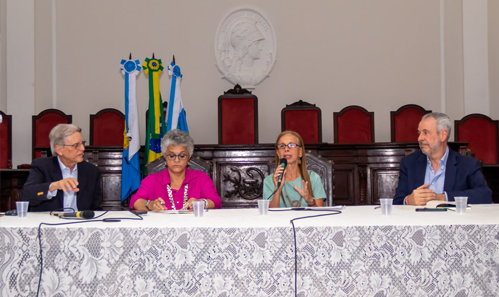
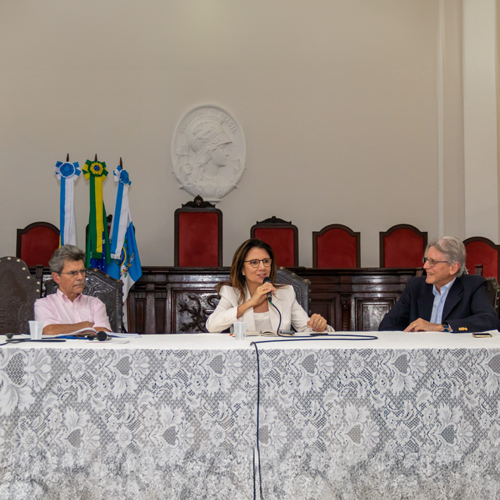
- Publication
- 2024
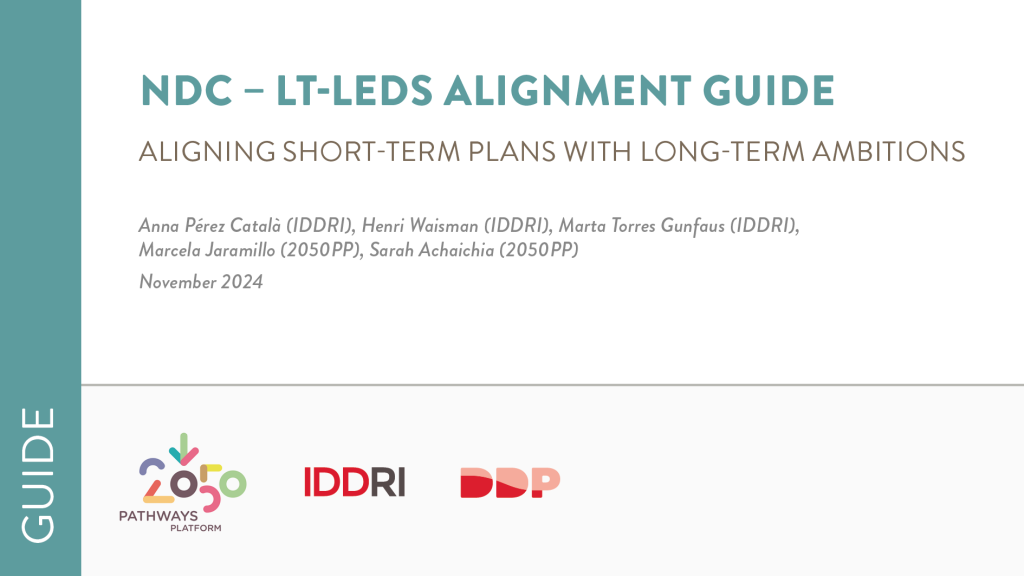
NDC – LT-LEDS alignment guide: Aligning short-term plans with long-term ambitions
- Read more…
- Publication
- November 19, 2024
NDC – LT-LEDS alignment guide: Aligning short-term plans with long-term ambitions
- Chile, Europe, India, Marocco
This guide was developed through close collaboration between the 2050 Pathways Platform and the Deep Decarbonization Pathways Initiative (DDP) at IDDRI. In order to help countries achieve alignment of short-term plans with the long-term systemic transformations needed to meet the goals of the Paris Climate Agreement, it provides a practical framework based on the premise that countries can fully understand how their NDCs align with the Paris Agreement only by viewing alignment through the lens of a Long-Term Low Emission Development Strategy (LT-LEDS), which can highlight transformations and actions that might be overlooked in a short-term perspective, expanding the scope of the alignment process. It also also includes four country case studies (Chile, European Union, Morocco, India) presenting real examples of alignment.
- DDP
- Publication
- 2024
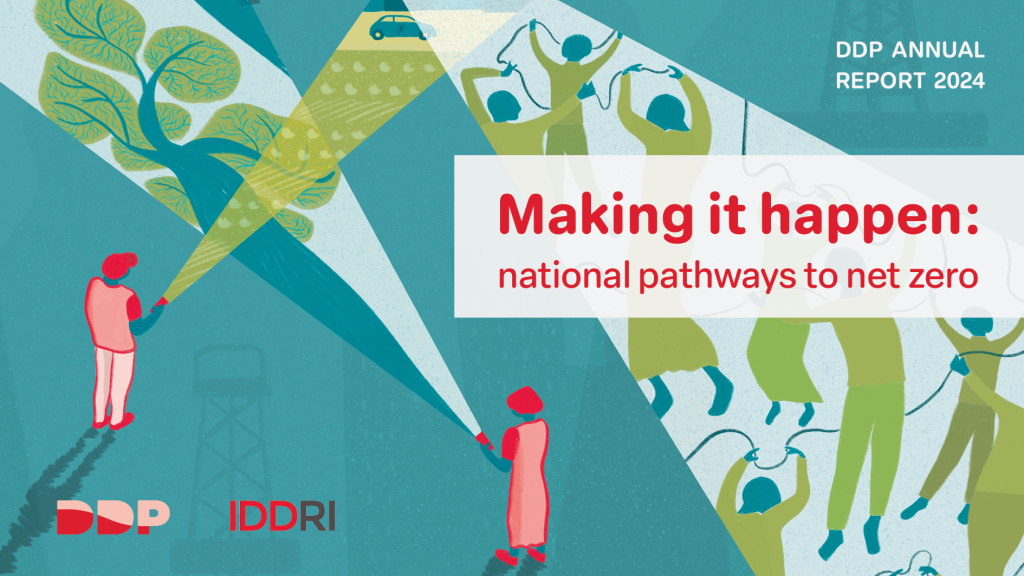
DDP Annual Report 2024
- DDP
- Publication
- October 17, 2024
DDP Annual Report 2024
- Argentina, Brazil, China, India, Indonesia, Mexico, Nigeria, Senegal, South Africa, USA
This 2024 report analyzes detailed scenarios from ten countries collectively representing nearly half of the world’s population and a significant portion of global emissions: Argentina, Brazil, China, India, Indonesia, Mexico, Nigeria, Senegal, South Africa, and the United States, based on in-country perspectives from local experts.
The report’s deep decarbonization scenarios showcase a variety of pathways to achieve carbon neutrality while maintaining economic growth and improving social well-being
- Conference
- 2024
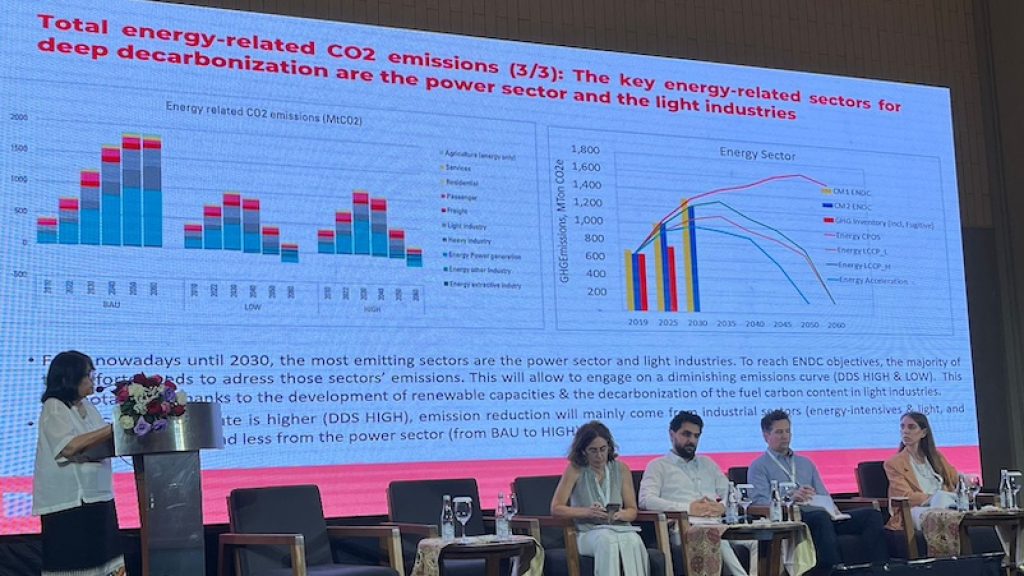
Participation in the international convening ‘2050 is Now’: Aligning Climate Action with Long-Term Climate and Development Goals
- Conference
- September 30, 2024
Participation in the international convening ‘2050 is Now’: Aligning Climate Action with Long-Term Climate and Development Goals
- Indonesia
As a member of the IKI-LTS Project consortium, the DDP initiative participated in the international convening ‘2050 is Now’: Aligning Climate Action with Long-Term Climate and Development Goals in Jakarta, Indonesia.
A great opportunity for our DDP research partners Gelang Dewi (Center for Research on Energy Policy, Institut Teknologi Bandung-Indonesia) and William Wills (CentroClima, COPPE-UFRJ-Brazil) to deliver insightful presentations and disseminate their key findings and policy lessons based on national scenario development, opening new perspectives on reducing carbon emissions at a national scale.
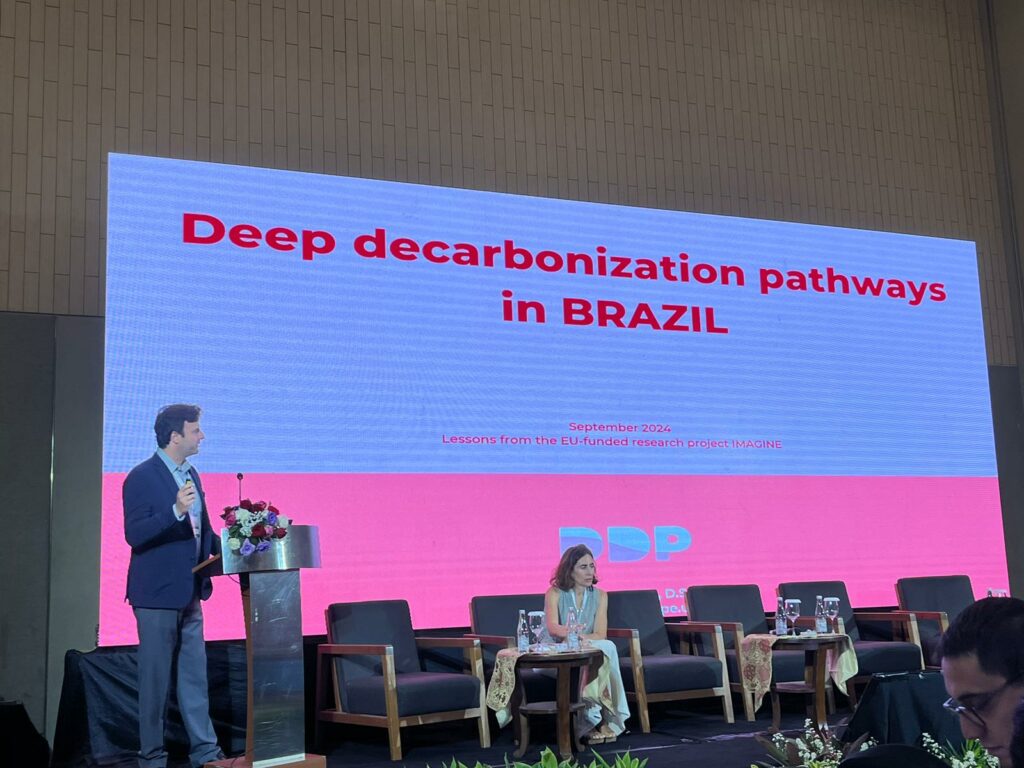
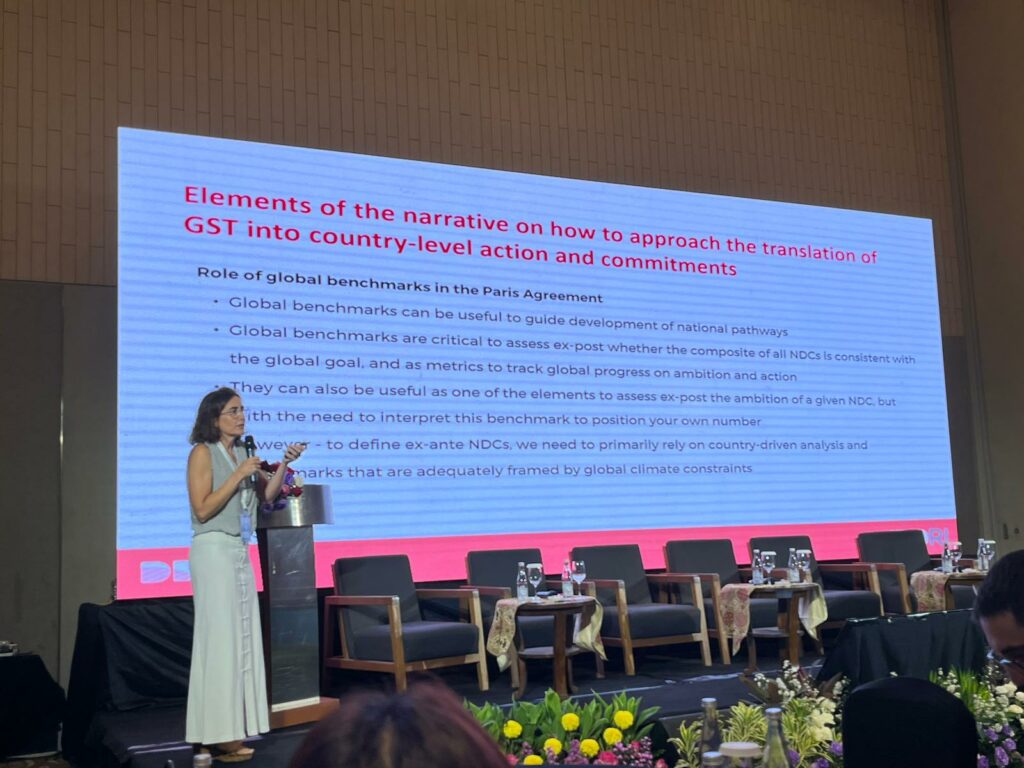
- Publication
- 2024
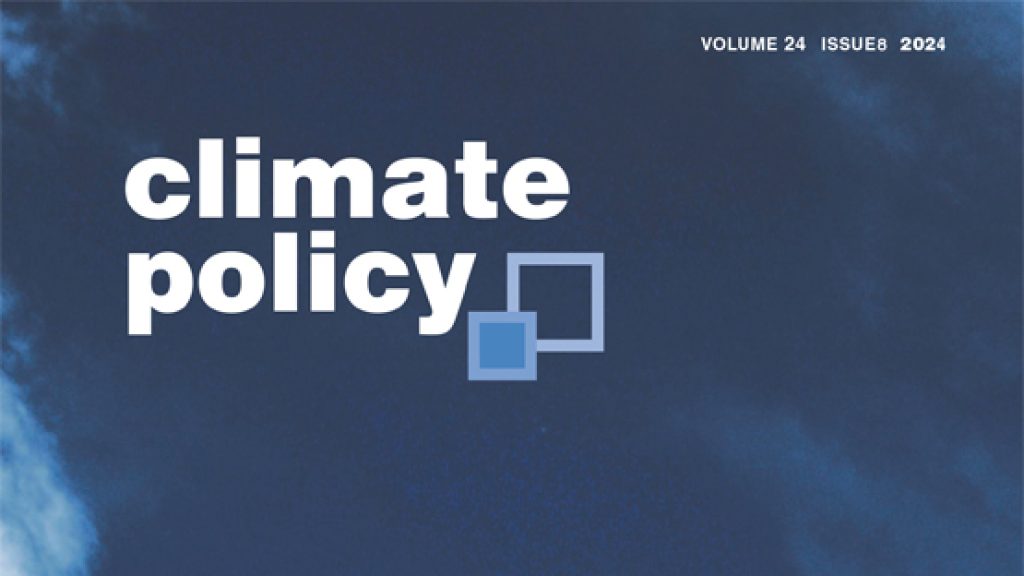
The AFOLU sector’s role in national decarbonization: a comparative analysis of low-GHG development pathways in Brazil, India and Indonesia
- Read more…
- Publication
- September 5, 2024
The AFOLU sector’s role in national decarbonization: a comparative analysis of low-GHG development pathways in Brazil, India and Indonesia
- Brazil, India, Indonesia
This paper analyses the role that AFOLU (agriculture, forest and other land use) plays in national deep decarbonization scenarios in Brazil, India and Indonesia between 2020 and 2050. It finds that the LULUCF (land use, land use change and forestry) subsector is important for medium-term mitigation (2020–2030) while continuing to contribute to mitigation over the long-term (2030–2050) in the three countries. Mitigation actions in LULUCF include drastically reducing deforestation (Brazil, Indonesia) and peat degradation (Indonesia), re-/afforestation (all), increased sequestration in standing forests (Brazil, Indonesia) and increasing soil carbon in agricultural lands (India). AFOLU further contributes to mitigation in Brazil and Indonesia by producing biomass feedstock for bioenergy. No country significantly reduces N2O and CH4 emissions from either agriculture or via demand-side actions on diets, due to trade-offs with food security, rural livelihoods and economic growth (although all countries reduce the GHG intensity of agricultural products). Furthermore, the paper analyses national policies to manoeuvre co-benefits and trade-offs between mitigation and other sustainable development goals (SDGs), including no poverty (1); zero hunger (2); decent work and economic growth (8); climate action, including both adaptation and mitigation (13); and life on land (15). Common policy areas were identified, including incentives to land managers for conservation or more environmental agricultural practices; changing regulations of land use to protect ecosystems and/or encourage shifts in agricultural practices; and strengthening enforcement capacity of land protection.
- Report
- 2024
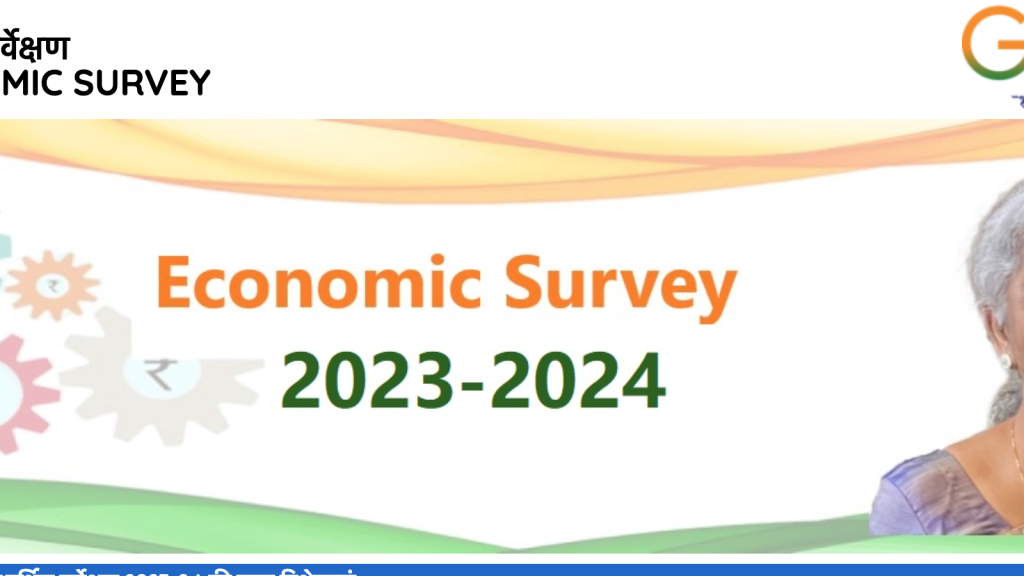
The Study “Synchronizing energy transitions toward possible Net Zero for India (…)” appears in the Economic Survey 2023-2024 of the Ministry of Finance, Government of India
- Report
- August 2, 2024
The Study “Synchronizing energy transitions toward possible Net Zero for India (…)” appears in the Economic Survey 2023-2024 of the Ministry of Finance, Government of India
- India
Excerpt appears in the Chapter 6 on “Climate Change and Energy Transitions: dealing with trade-offs“, box on page 198-199 that you can find also via the general report of Economic Survey 2024-2024: https://www.indiabudget.gov.in/economicsurvey/
“A study titled ‘Synchronizing energy transitions toward possible Net Zero for India: affordable and clean energy for all’ was conducted by the Indian Institute of Management Ahmedabad with the support of the Office of the Principal Scientific Adviser to the Government of India and the Nuclear Power Corporation of India Ltd.
The report contains the projection of the energy mix in the backdrop of India’s Net Zero 2070 announcements and cleaner, affordable energy for all. The projected future energy basket for 2030, 2050, and 2070 across various growth and climate commitment scenarios have been presented in the report.
Main Conclusions of the Report
1. A sustainable energy transition needs the co-existence of several energy sources.
2. Coal is projected to continue until the next two decades as the backbone of the Indian energy system. Although technologies such as Carbon Dioxide Removal technologies (CDRs), such as Bioenergy with CO2 Capture & Storage (BECCS), and CCUS need to be explored to reduce the emissions from the use of coal. However, the energy penalty65 for deploying BECCS/CCUS at power plants would need a closer examination.
3. Renewable Energy (RE) and nuclear power are expected to be the predominant sources of energy by 2070.
4. Coal phase-down will be heavily dependent on the import of critical minerals required for renewable energy and battery storage unless the country invests in the development of technologies based on domestically available mineral resources and those that enable the reuse, recovery, and recycling of critical minerals.”